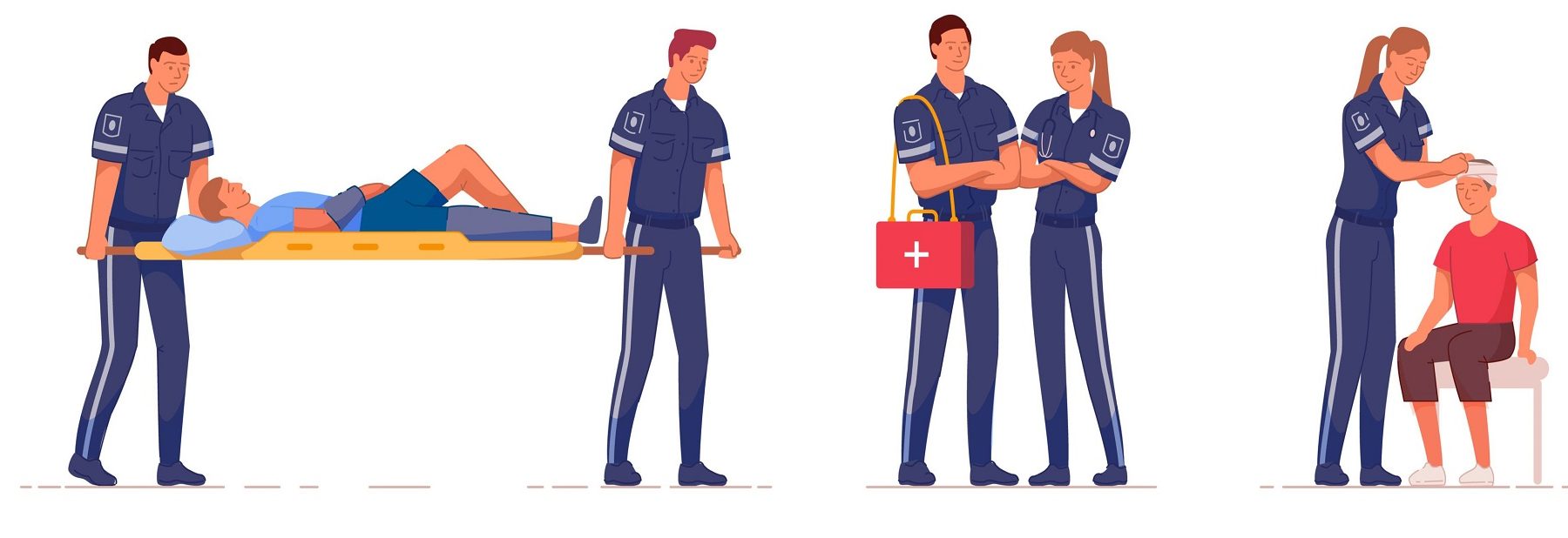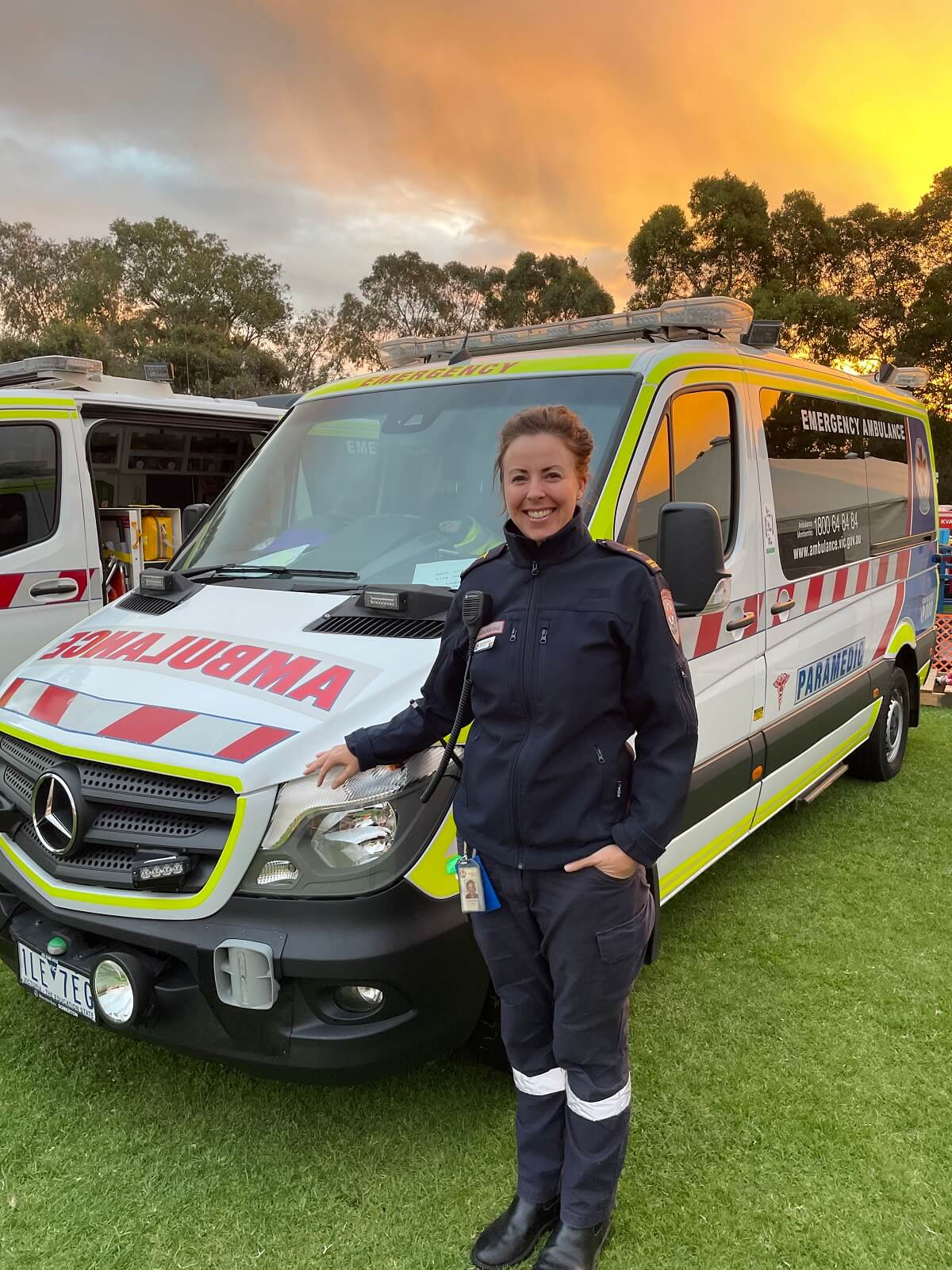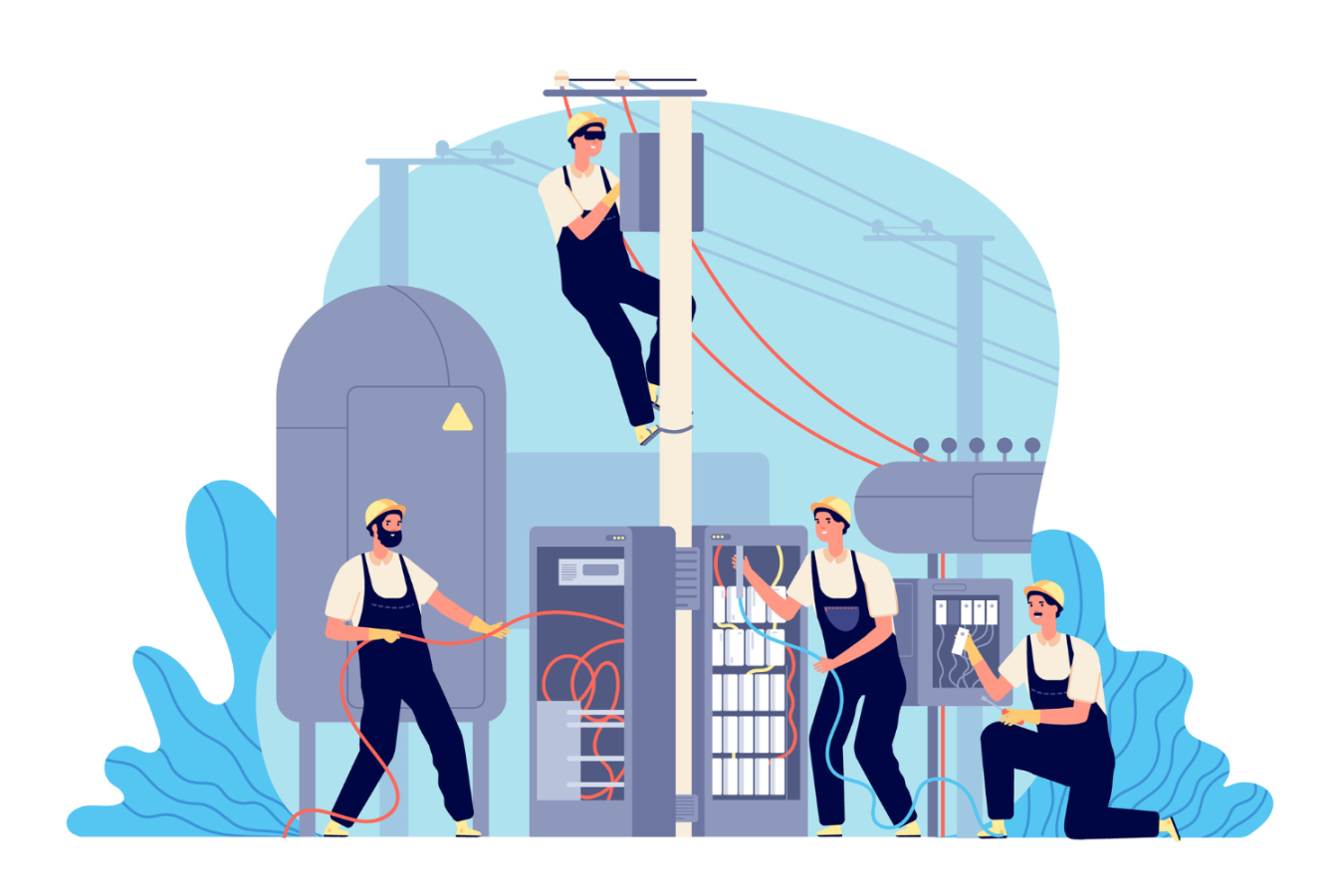
In the next instalment of our series, 'So you want to be...' Natalie Moutafis speaks with Jessica McGowan, Ambulance Victoria Paramedic and Director Regional and Clinical Operations.
We’re sharing some varied careers with you to discuss with the young people in your life who are beginning to think about the careers they’d like to pursue.
In this next instalment of our ‘So you want to be…‘ career series, Natalie Moutafis speaks with Jessica McGowan, Ambulance Victoria Paramedic and Director Regional and Clinical Operations, who talks about making a difference to someone every day.
When did you know you wanted this career?
I’ve always been interested in health and health sciences and interested in learning about the body and how it works.
I did 12 years of nursing before I transitioned to ambulance, so I’ve forever been in a profession that involves caring for and helping sick people. I have worked at the Royal Children’s Hospital and St Vincent’s, both in Emergency Nursing, and have also had the opportunity to nurse in London and Ireland.
What made me turn to paramedicine was wanting a career change into something that was more fast-paced and exciting. Ambulance Victoria (AV) is truly different every day and we’re able to be outside as part of our jobs too, which I love. There’s always a different location and setting.
Did you choose subjects in high school to aid you in this career path?
In years 11 and 12 my subjects were focused on sciences. I wasn’t really steering towards anything, but I avoided subjects like accounting and economics because I simply didn’t enjoy them. I had more of an interest in biology, chemistry and human studies, so I naturally progressed towards those.
My interest in the sciences is what led me to pursue my career and the patient connection that has come with the work is an added bonus.
That connection and ability to use science to make a person feel better and the process of how you can use medications to manipulate body functions to improve patient’s state and chance of survival is still very interesting to me, even after all these years.
Did you undertake further education (University, TAFE, on the job training etc.) for this career?
I completed a Bachelor of Nursing through Australian Catholic University. I also did a postgraduate in Critical Care – ICU and emergency nursing. That was essentially like going to the next level of science – working with a range of respiratory equipment, such as ventilators and looking after patients that were more critical.
After that, I did a postgraduate diploma in paramedicine which ultimately led me to become a paramedic.
It’s a slightly different pathway to becoming a paramedic than what most people take. Some people will complete a joint nursing and paramedic degree, which you can do at the same time. Others do a straight paramedicine degree.
Once I started at AV, I started on the road as an Advanced Life Support (ALS) paramedic.
I’ve now done several roles at AV. I was an ALS paramedic for the first five years and during that time I also did clinical instructing, secondary triage training and worked on the phones in communications. Then I tried my hand at team managing and have moved on from there.
I’ve now been in ambulance for 15 years and most recently I’ve been a Regional Director, with my incumbent role being an Area Manager that looks after about 250 paramedics and ambulance resources in the west of Melbourne.
In my current role, I’m able to get out and about and work as the health commander at major events and festivals where I manage the health and ambulance response. I like the opportunity to still utilise my skills from a clinical perspective.
What do you love about your career?
The best part about working at Ambulance Victoria is you make a difference to someone every day, regardless of whether it’s a ‘big job’ or not.
I like that each day is different to the one before and you don’t know what you’re going to do, where you’re going to go or, who you’re going to meet. You can be working inside or outside, so even though you can be responding to challenging cases, it’s an alternating working environment, as opposed to sitting at a desk all day.
Obviously, paramedics respond and work on extremely hard jobs, but overall I think being a paramedic is fun. You get to work with a partner, make a real connection, and be part of a team which makes a difference to someone’s life. It’s not every job that people call on you and need you, and grateful to see you. It has some really special moments.
As an example, one minute you might be having a sandwich and, the next you’re delivering a baby. Or you could be driving to a job and the information you received suggests someone has fallen over with a sore hip, but on the way you get called to attend a car accident instead that is a few streets away.
It’s the type of role that won’t suit everyone because it’s fast-paced and constantly changing.
You need to be empathetic with people and towards their situations, but not take everything home with you. We try to keep in mind that while it might be a patient’s worst day, it’s not your worst day. Regardless of a patient outcome, you want to be able to go home and know that you’ve done the best job possible, and that you were there for that patient in their time of need.
What do you wish you knew about your career before you started?
The element of seeing the patient first is what sets ambulance a part (from the rest of the health system). The injuries and presentations are the same as other settings, but the opportunity to clinically assess and treat patients before anyone else sees them is exciting, challenging and there’s a big responsibility that comes with it.
Paramedics treat people at the site of the incident, in all types of conditions and situations. You might be treating a motorcyclist, they’re still wearing their helmet, they could be down a ditch and it’s raining. Whereas a nurse in a hospital would treat someone who has been removed from the scene and is in bed with a gown on.
Another thing I didn’t realise when I started was the privilege of being able to go into someone’s house. As a paramedic you’re in a complete stranger’s house and suddenly expected to be able to access where tablets are located, get their dressing gown out of a cupboard and pack their bag for hospital. You’re seeing where they live, how they live, photos of their loved ones. You’re not normally welcomed into a perfect stranger’s house in that type of way.
I can’t think of many other occupations where the connection is that instant, that immediate.
Any advice to students contemplating this as a career path?
I felt like I had a good insight into the world of ambulance before I started because I came into the career from nursing. But one thing I would say is that just because someone has called for an ambulance, doesn’t necessarily mean they need an ambulance.
Some people watch our Paramedics TV show and think it looks constantly exciting and challenging – and it can be. The show gives a good insight into Ambulance Victoria because they are real cases and real paramedics, but not every job is big and dramatic. Having said that, every single job does matter to that patient.
The qualities I think someone would need to have to be a paramedic would be to be resilient, flexible, be able to work well in a team, be quick to build rapport and mix socially with people of all backgrounds and ages. You need to have a cool head under pressure and be able to think outside the box.
There are some challenging hours and obviously there are some confronting jobs.
It’s a 24-hour service, it’s shift work which includes days, nights, weekends, and holidays. We do get a lot of annual leave though, which is great for people who like to travel!
Being a paramedic isn’t the right job for everyone, but it is a great job if it’s the right fit for you.

Jessica McGowan is an Ambulance Victoria Paramedic and Director Regional and Clinical Operations. We thank her for sharing her story on how she became a parademic.
Like this post? Please share using the buttons on this page.
Stay up to date with our newsletter here

